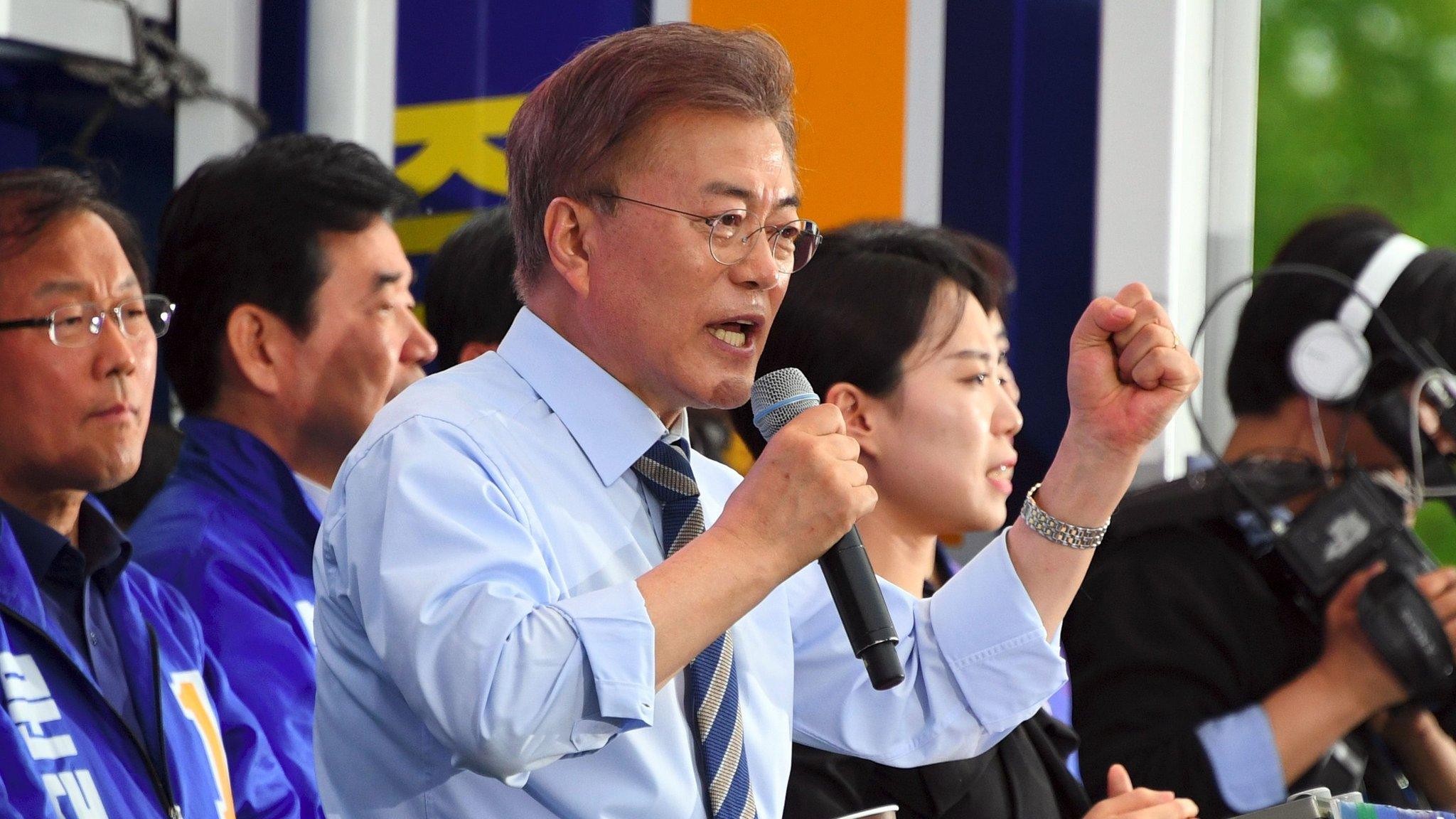S Korea election: Why the economy is top priority
- Published
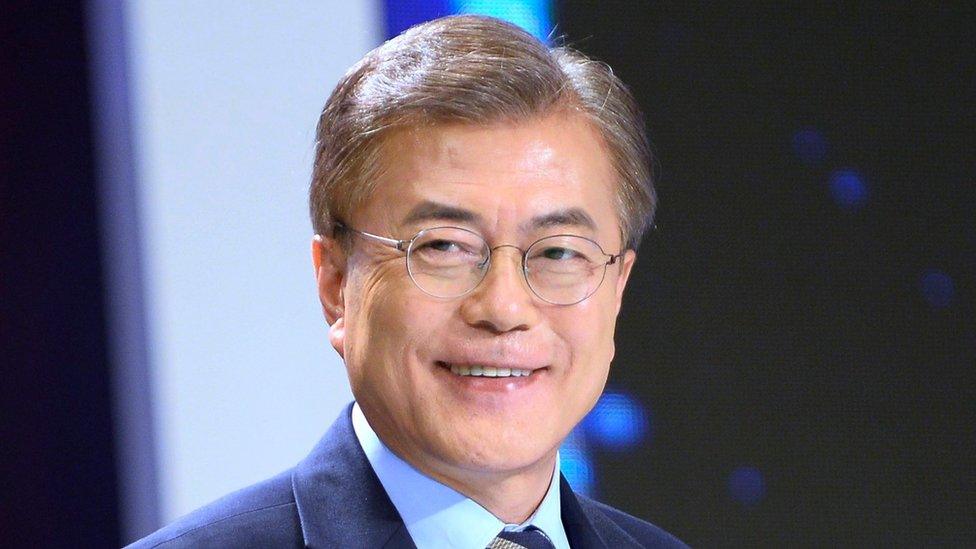
Moon Jae-in is the front-runner in the South Korean presidential election
For all the talk of North Korea and the controversial THAAD anti-missile system, my recent trip to South Korea left me in no doubt that for most voters, top of their minds going into the country's presidential elections is something far less headline-grabbing: the economy.
In the 1960s, South Korea was one of the poorest countries in the world. Today it's Asia's fourth largest economy and one of the world's most advanced.
That progress is largely thanks to the performance of its chaebols: massive family run conglomerates. But now businesses are being criticised for holding South Korea back. Many people I spoke to said it's time for change.
It sucks to be young
Youth unemployment is at record highs, close to 10%.
Young people say that the system is unfairly stacked against them, and that the economy is dominated by the chaebols, which basically own South Korea's economy.
That has effectively left little or no room for small and medium-sized enterprises (SMEs) which are usually the life-blood of an economy, and typically help to create jobs.
Also, given that chaebols are so dominant, young people end up wanting to work in them. And that means even if there were jobs to fill at SMEs, there'd be few takers.
Chaebols rule the world
The calls for chaebol-reform aren't new, but they do appear to have gained more momentum than in previous years. Here's why chaebols are becoming ever more powerful in the economy.
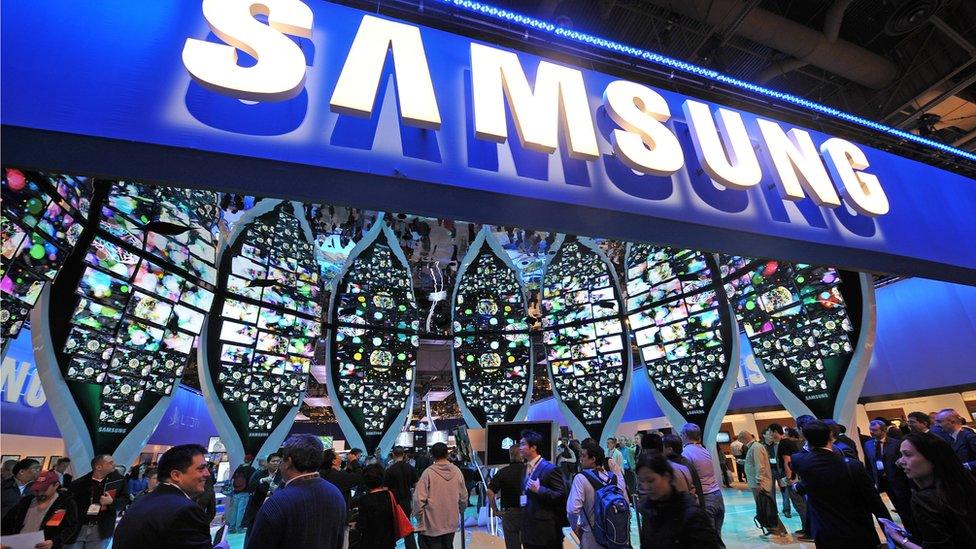
Revenues from the top five chaebols make up more than half of South Korea's GDP. Samsung, which is the country's largest, makes up a fifth of the economy.
It's true that in the past chaebols were job-creators, but now most of their business is derived from overseas markets. So they're hiring less at home, and are not bringing all of those profits back.
Money for influence
The money-for-influence scandal is what brought down the previous President Park Geun-hye.
Many Koreans believe the cosy relationship between business and government has created a class system where the elites constantly succeed and those who don't have access to power are left behind.
In particular there's been a lot of resentment of the "chaebol-children" - the next generation in these family-run businesses. They're seen as spoiled, privileged and out of touch.
The bribery trial of Samsung's de facto head Lee Jae-yong - son of the current chief executive and grandson of the firm's founder, has underlined those concerns
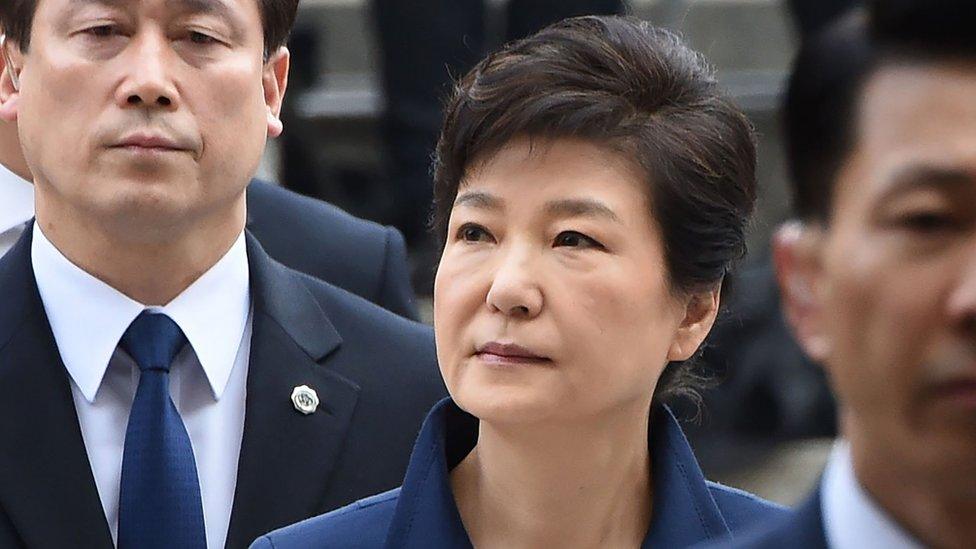
Former president Park Geun-hye was impeached over a corruption scandal
Top-down innovation
Think of South Korea's chaebols and immediately Samsung, LG and Hyundai come to mind. They've all invested heavily in research and development to try and come up with products that beat their competitors. South Korea invests more of its GDP in R&D than most other Asian nations, according to the OECD.
The attractiveness of working in a chaebol means few young people are prepared to take a risk and start a company of their own, a trend that stifles ideas and creativity.
Also for those who do take the leap and set up on their own, the biggest customers are invariably chaebols. They are criticised for unfairly controlling prices and squeezing profits for start-ups, effectively putting them out of business.
The Chinese challenge
All of this is coming at a time when South Korea's preeminent position in the world of the technology and innovation is being challenged by China.
Chinese manufacturers like TCL and Xiaomi are now making flat screen televisions and mobile phones, and at price points that are highly competitive. China is also investing heavily in R&D, and exporting overseas.
South Korea has also had to deal with the political instability of what's happening at home and in the volatile North, which has taken the focus off growth in the medium-term. The new administration will have its work cut out.
- Published9 May 2017
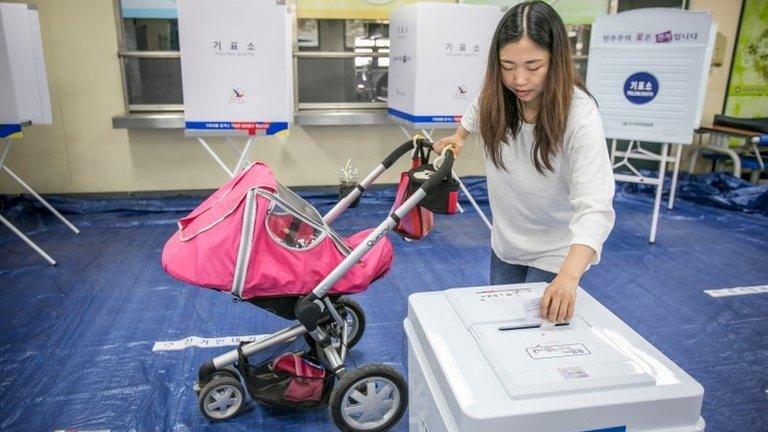
- Published5 May 2017
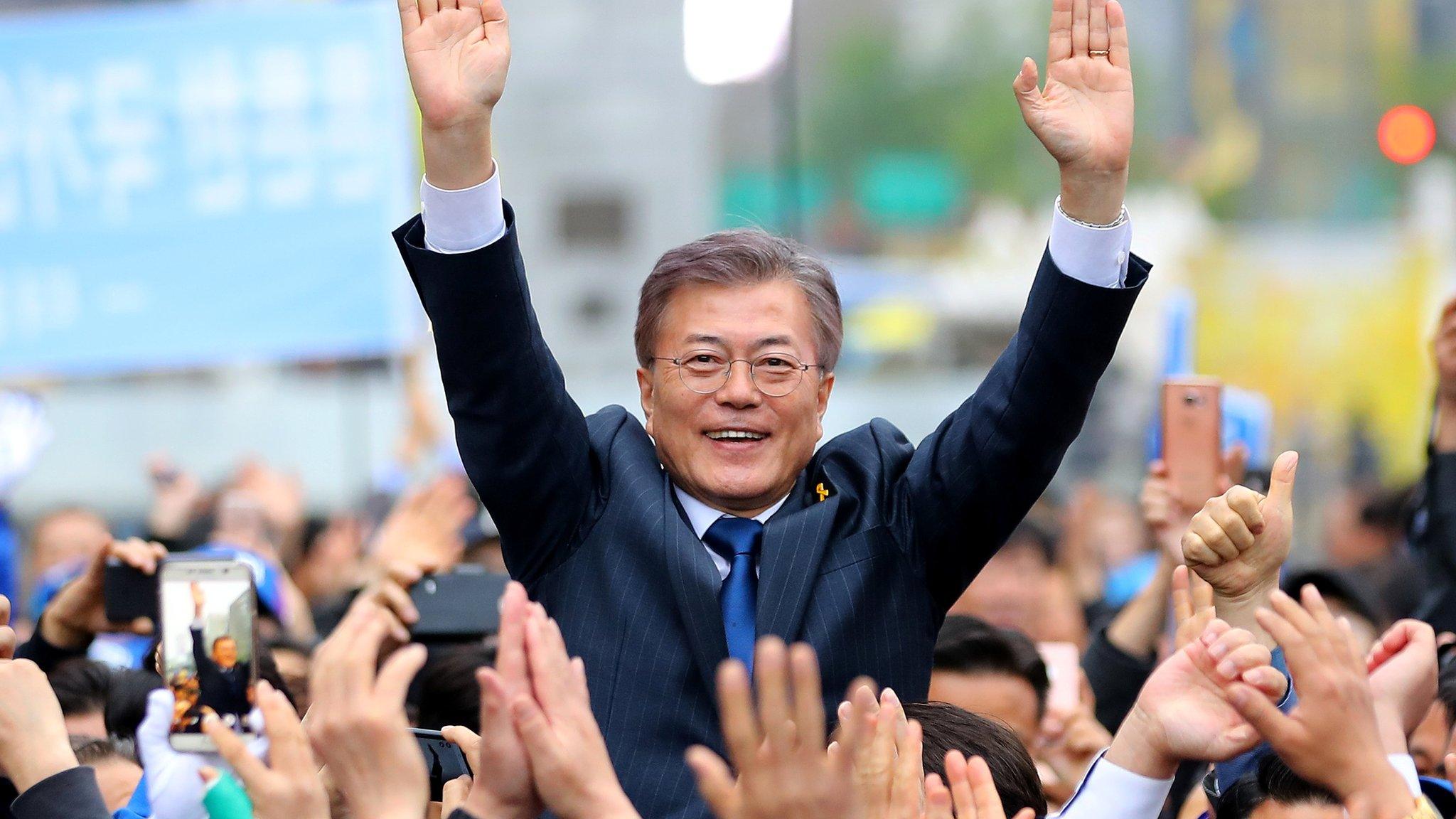
- Published8 May 2017
